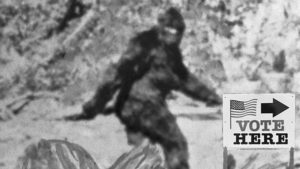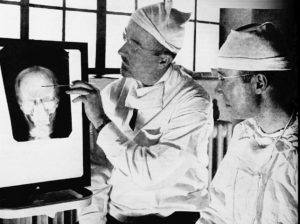
U.S. Senate
See Full Big Line
(D) J. Hickenlooper*
(R) Somebody
80%
20%

Governor
See Full Big Line
(D) Joe Neguse
(D) Phil Weiser
(D) Jena Griswold
60%
60%
40%↓

Att. General
See Full Big Line
(D) M. Dougherty
(D) Alexis King
(D) Brian Mason
40%
40%
30%

Sec. of State
See Full Big Line
(D) George Stern
(D) A. Gonzalez
(R) Sheri Davis
40%
40%
30%

State Treasurer
See Full Big Line
(D) Brianna Titone
(R) Kevin Grantham
(D) Jerry DiTullio
60%
30%
20%

CO-01 (Denver)
See Full Big Line
(D) Diana DeGette*
(R) Somebody
90%
2%

CO-02 (Boulder-ish)
See Full Big Line
(D) Joe Neguse*
(R) Somebody
90%
2%

CO-03 (West & Southern CO)
See Full Big Line
(R) Jeff Hurd*
(D) Somebody
80%
40%

CO-04 (Northeast-ish Colorado)
See Full Big Line
(R) Lauren Boebert*
(D) Somebody
90%
10%

CO-05 (Colorado Springs)
See Full Big Line
(R) Jeff Crank*
(D) Somebody
80%
20%

CO-06 (Aurora)
See Full Big Line
(D) Jason Crow*
(R) Somebody
90%
10%

CO-07 (Jefferson County)
See Full Big Line
(D) B. Pettersen*
(R) Somebody
90%
10%

CO-08 (Northern Colo.)
See Full Big Line
(R) Gabe Evans*
(D) Yadira Caraveo
(D) Joe Salazar
50%
40%
40%

State Senate Majority
See Full Big Line
DEMOCRATS
REPUBLICANS
80%
20%

State House Majority
See Full Big Line
DEMOCRATS
REPUBLICANS
95%
5%
 March 09, 2021 10:56 AM UTC
March 09, 2021 10:56 AM UTC 7 Comments
7 Comments Somewhere near Leadville, Colorado, on the way to Mount Elbert — Colorado’s highest mountain peak — there is an unmarked road that meanders beneath a towering forest of Aspen trees. If you follow this path and take a left at the beaver dam, you might be lucky enough to come across the spartan home where Bigfoot raises his Yeti children. Should you continue along the rocky road ahead, you will eventually reach a charming village inhabited by that rarest of mammals: The “real unaffiliated voters” of Colorado.
Somewhere near Leadville, Colorado, on the way to Mount Elbert — Colorado’s highest mountain peak — there is an unmarked road that meanders beneath a towering forest of Aspen trees. If you follow this path and take a left at the beaver dam, you might be lucky enough to come across the spartan home where Bigfoot raises his Yeti children. Should you continue along the rocky road ahead, you will eventually reach a charming village inhabited by that rarest of mammals: The “real unaffiliated voters” of Colorado. 
You don't believe in Big Foot?
As a quick reminder, the selection process is, to say the least, thorough:
Phase One. Individuals apply using online application process.
Phase Two. Nonpartisan staff review of applications for the initial applicant pool.
Phase Three. The judicial panel randomly selects 300 Democrats, 300 Republicans, and 450 unaffiliated voters to establish a selection pool of 1,050 people.
Phase Four. The judicial panel reviews applications and narrows the pool down to 50 Democrats, 50 Republicans, and 50 unaffiliated voters to establish a pool of 150 people.
Phase Five. The judicial panel randomly selects 6 commissioners (2 Democrats, 2 Republicans, and 2 unaffiliated voters) from the 150-person pool.
Phase Six. 4 legislative leaders select 10 applicants each from the initial applicant pool and submit them to the judicial panel.
Phase Seven. The judicial panel selects 4 commissioners, 1 from each of the legislative leaders’ pools.
Phase Eight. The judicial panel selects 2 commissioners from the original pool of 450 randomly selected unaffiliated voters.
How about this? Only registered members of Antifa can be on the Commission?
By the 2030 census, I expect Antifa to have gained major-party status, so they'll have to be on the commission.
Well done, CoPols.
Why does anyone care anymore about what Mr. Wadhams has to say?
By almost any measure, he was good for Colorado Democrats while getting paid by Republicans.
Also, a minor correction "There is no “Unaffiliated Party” or club in which you might seek membership." There is, but it is kind of like fight club.
I don't believe the majority of voters in Colorado are unaffiliated, but rather the largest portion of voters are unaffiliated. Last checked, they were about 40% of the electorate. Majority is 50% + 1.
You’re right, doremi. It should read:
”A plurality of registered voters in Colorado are now “unaffiliated”.